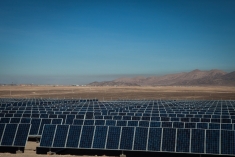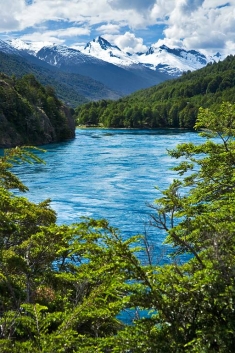Another Nail in the Coffin of HidroAysén
After less than two weeks in office, the new administration of President Michelle Bachelet set an important precedent last week – no more business as usual.
On Wednesday March 19, the new Comité de Ministros (Committee of Ministers) – the highest administrative authority in Chile – under Bachelet resolved to invalidate the decision made by the previous administration that partially ruled on the appeals to the 2,750-megawatt, five mega-dam project, HidroAysén. Citing “illegal defects,” the Minister of the Environment Pablo Badenier announced that the Comité will no longer demand the requested studies and instead make a definitive ruling on the project as it stands. He assured that the Comité will evaluate the 35 claims presented by the company and its opponents and deliver a definitive ruling on the project on June 10. The government said it will allow all parties involved, including the local communities, to make their arguments in favor or against the project before issuing a final decision.
This comes on the heels of a surprise meeting on January 30, 2014, during which Piñera’s Comité decided not to rule on the project and instead requested additional studies to evaluate the impacts of the dams.
The Piñera Comité reviewed the 35 appeals to the project and identified two areas they believed warranted further investigation – the hydrological impacts on the two rivers on which the five dams would be built, and the impacts the migration of 5,000 construction workers to the region will have on Aysén. These studies would determine daily water flow if the dams become operational and would include an assessment of the project’s potential impact on surrounding glaciers. These studies will no longer be conducted.
These two Comité decisions in quick succession come after the project remained stagnant for an unprecedented two and a half years – the review process was scheduled to take only 60 days – from when it received environmental approval in May 2011 after three years of review.
Minister Badenier stated his belief that it was not appropriate to ask for more studies almost three years after the project received its environmental approval and that any necessary impact assessments should have been completed during the initial evaluation of the project.

Badenier expressed his desire to "de-hidroaysenize” the debate about Chile’s energy future and instead focus on a holistic approach to Chile’s energy needs. He said that his priority is to deliver an energy plan within the first 100 days of the new administration as promised by President Bachelet that addresses both short- and long-term needs for the country. He said “The country knows that this is (just) one project; we have to understand that we have many others.”
One thing is certain – the administration will decide on the future of HidroAysén on June 10. Myself and my colleagues in the CDP are hopeful that the Comité will determine that the environment impact assessment (EIA) was in fact insufficient and reject it outright.
Even if the project is rejected, it is always possible that HidroAysén will redesign and submit a new EIA. However, the momentum against the project may be insurmountable. President Michelle Bachelet stated repeatedly throughout her presidential campaign that the project is "not viable.”
This case will set an important precedent for other dams proposed in Patagonia including those on the Cuervo and Futaleufú rivers.
This announcement by Bachelet’s Comité is a significant step in finally canceling HidroAysén once and for all. We’ll continue to keep you updated with any developments, and stay tuned for the opportunity to send a message to President Bachelet asking her to finally cancel the misguided and detested HidroAysén project for good.
- Blogs by Amanda Maxwell from NRDC titled, "The future of Chile's energy sector lies with renewable energy, new report shows" and "Energy Efficiency: A Pillar of Chile's Energy Future (Part I)"
- BBC Article: "HidroAysen: Chile to review biggest energy project plan"



